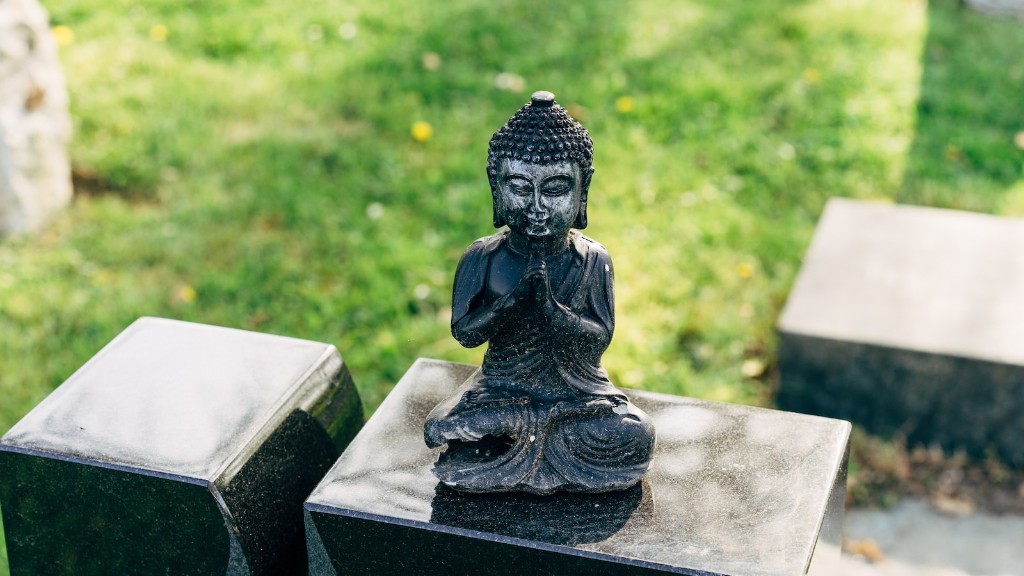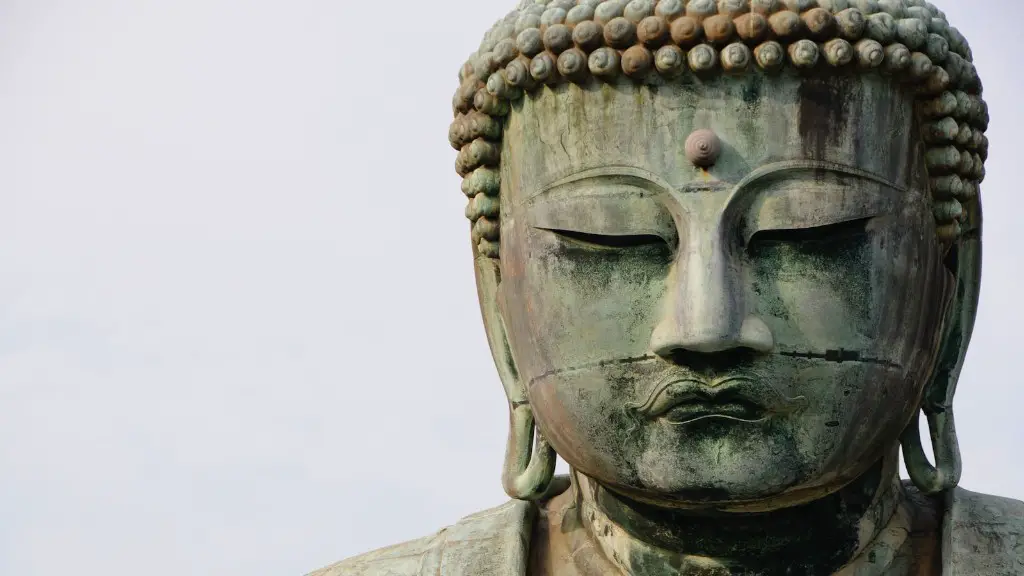Buddhism is a religion that is based on the teachings of Siddhartha Gautama. Siddhartha was born into a royal family in what is now Nepal. He left his home and family at a young age in search of knowledge and enlightenment. After years of study and meditation, Siddhartha is said to have achieved nirvana, or a state of perfect peace and awareness. He then began teaching others what he had learned, and Buddhism was born.
Buddhism teaches that there is no permanent self, or soul, that survives after death. Rather, what we think of as our soul is simply a collection of interconnected parts that make up our consciousness. When we die, those parts disperse and are reborn into other beings. This cycle of birth and death is called samsara.
The ultimate goal of Buddhism is to escape from samsara and achieve nirvana. Nirvana is a state of complete peace and freedom from suffering. In order to achieve nirvana, Buddhists must follow the Eightfold Path. This path includes such things as ethical living, meditation, and wisdom.
There is no clear consensus on what, if anything, happens to a person after they die in Buddhism. Some schools of thought believe in reincarnation, while others believe in nirvana.
What is the afterlife called in Buddhism?
Since Buddha’s death, many Buddhists have chosen cremation to free the soul from the body. Because they believe that several stages of life called bardos continue for hours or days after the body dies, cremation does not take place right away.
The concept of rebirth is a central tenet of Buddhism, and it is one of the most important things to understand about this religion. According to the beliefs of Buddhism, when a person dies, their soul is reborn into another person or animal. This process is known as reincarnation, and it is thought to be an endless cycle that a person is trapped in until they reach enlightenment.
There are many different theories about what happens to a person’s soul after they die, but the most common belief is that it is reborn into another person or animal. This process is thought to be an endless cycle that a person is trapped in until they reach enlightenment.
The belief in rebirth is one of the things that makes Buddhism unique. It is a complex and difficult concept to understand, but it is an essential part of the religion.
Does heaven exist in Buddhism
In Buddhism, there are several heavens, all of which are still part of samsara (illusionary reality). Those who accumulate good karma may be reborn in one of them.
There is a great deal of variation in Buddhist beliefs about the afterlife and what happens to a person’s soul. Tibetan Buddhists believe in the concept of the bardo, which is an in-between stage that lasts for up to 49 days after a person’s death. During this time, the soul is said to wander in a sort of limbo, and it is possible for the person to be reborn into another life if they have not yet attained enlightenment. Theravada Buddhists, on the other hand, believe that rebirth can happen immediately after a person’s death, and that those who have attained enlightenment will not be reborn at all.
What do Buddhist do when someone dies?
Cremation is seen as the preferred choice when a loved one dies due to the Buddhist belief in reincarnation. The physical body holds little significance to the Buddhist faith, it is merely a vessel for holding the soul. Buddhists also believe in organ donation as it is seen as a good deed.
Bereavement support can be a vital resource for those who are grieving the loss of a loved one. Buddhists recognize that grief is a universal and inevitable experience, and that surviving friends and relatives must learn to carry on without their loved one. Free bereavement support can help ease the transition and provide essential support during this difficult time.
Who is Jesus in Buddhism?
There are some similarities between Jesus and Buddhism, such as the belief in reincarnation. However, there are also some significant differences, such as the focus on mindfulness and meditation in Buddhism. Overall, though, the two faiths are quite different.
According to Buddhist belief, “sagga” (heaven) is a place of happiness and enjoyment that one can be reborn into as a result of past good deeds and accumulated merits. This is one of the two higher levels of existence that one can achieve, and it is a destination that is much sought after.
Are Buddhists scared of death
The Buddhist theory instructs individuals to cope with death anxiety and cultivate acceptance by training the mind to detach from personal conceptions and expectations of death, and to see the impermanent nature of life. This theory can be helpful for people who are struggling with their own mortality, and who need a way to come to terms with the fact that death is a natural part of life. By detaching from their personal thoughts and feelings about death, and by seeing the impermanence of all things, individuals can learn to accept death and to live in the moment.
Many religions believe in the soul’s eternal life, but Buddhism teaches that everything is impermanent, including the self. This is a fundamental difference between these two philosophies. Buddhism teaches that attachment to things leads to suffering, so if we can let go of our attachment to the idea of the soul’s eternal life, we can be free from suffering.
Do Buddhist believe in the soul?
Buddhist traditions and texts typically reject the idea of a permanent, unchanging atman (self, soul). This is because the Buddhist teachings focus on the impermanent nature of all things, and the atman is seen as just another impermanent entity. Therefore, it is taught that attachment to the atman is the root of suffering, because it leads to a false sense of security and an inability to let go of things that are inevitably going to change or disappear.
While cremation is the most common form of funeral in Thailand, it is not the only option. After the cremation of the body, ashes are often stored in a chedi (structure like a mound) at a temple. Crying is discouraged during Thai Buddhist funerals as it is believed to cause worry to the deceased’s spirit, so such funerals may actually appear to be quite cheerful affairs.
Why can’t you cut your hair after a funeral
This belief emanates from the belief that nails and hair were given to the children by the deceased as a parent and as such they shouldn’t be trimmed during the mourning period and after the burial At least you should wait for 49 days.
In the olden days, it was customary for family members to gather together at the deceased’s house on the seventh day following their death. This was seen as the time when the dearly departed would return back home. Today, this tradition is not as common, but it is still a meaningful way to honor a loved one’s memory.
Do Buddhist believe in the Holy Spirit?
Buddhists do not believe in any sort of god or deity, although there are supernatural figures who can help or hinder people on the path towards enlightenment. These figures are not worshipped or venerated, but are instead seen as potential sources of aid or obstacles on the path to Buddhahood.
Hinduism is one of the oldest religions in the world, and it has Originated in India. Buddhism also originated in India, and the two religions have Influenced each other over centuries. Both religions have had a profound Impact on Indian culture and society.
Can Christians be Buddhists
The Dalai Lama and Lawrence Freeman both agreed that it is not possible to be a Christian and a Buddhist. They explained that the two religions have different beliefs and practices that cannot be reconciled. They noted that while there is some common ground between the two religions, such as a belief in compassion and meditation, the differences are too great to overcome.
The ānantarya Karma are the most serious offences in Buddhism and must be avoided at all costs. They are incredibly powerful and can cause immediate disaster.
Final Words
Buddhism believes in reincarnation, a process whereby the soul is reborn into another body after death. The soul is seen as being subject to a cycle of birth and death, known as samsara, in which it is perpetually reborn into new bodies. This cycle is seen as being caused by the soul’s attachment to desires and its consequent suffering. The goal of Buddhism is to break free from this cycle, which can only be achieved through the attainment of Nirvana.
Buddhism teaches that the soul is reborn into another body after death. This cycle of birth and death is called samsara. Buddhists believe that one can escape samsara by following the Noble Eightfold Path.


